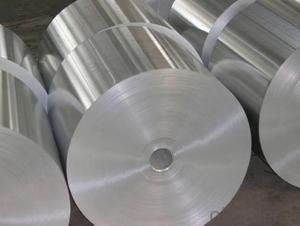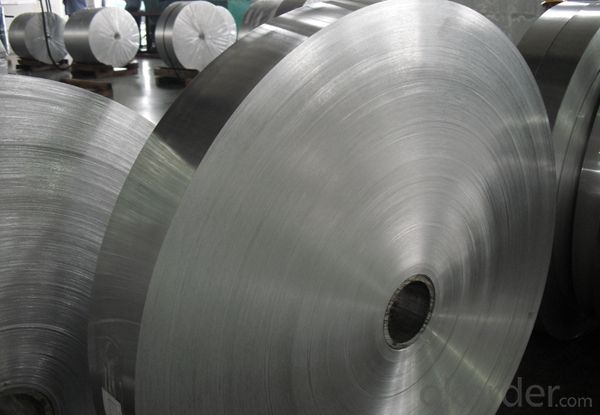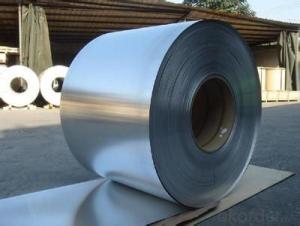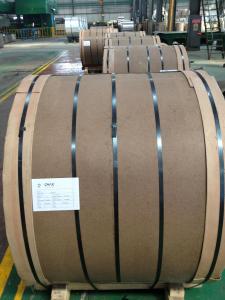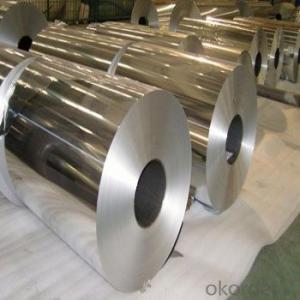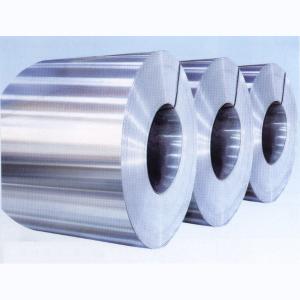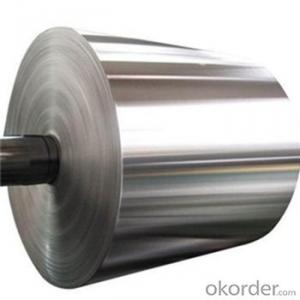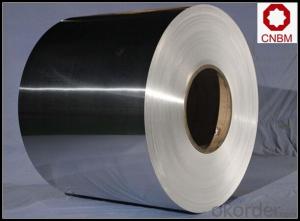American Standard Aluminum Coils - Rolls Aluminum Mill Finished Hot Selling Products
- Loading Port:
- Shanghai
- Payment Terms:
- TT OR LC
- Min Order Qty:
- 5 m.t.
- Supply Capability:
- 10000 m.t./month
OKorder Service Pledge
OKorder Financial Service
You Might Also Like
Specification
1. Specification of Rolls Aluminum Mill Finished Hot Selling Products
characteristics | Application |
1) Super peeling strength | 1) Building exterior curtain walls |
2) Excellent surface flatness and smoothness | 2) Decoration and renovation additions for old buildings |
3) Superior weather, corrosion, pollutant resistance | 3) Decoration of interior walls, ceilings, bathrooms, kitchens and balconies |
4) Even coating, various colors | 4) Shop door decorations |
5) Fireproof, excellent heat and sound insulation | 5) Advertisement board display platforms and signboards |
6) Superior impact resistance | 6) Wallboards and ceilings for tunnels |
7) Lightweight and easy to process | 7) Industrial materials, materials for vehicles and boats |
2. Application of Rolls Aluminum Mill Finished Hot Selling Products
(1).Interior: wall cladding, ceilings, bathrooms, kitchens and balconies, shutters, doors...
(2).Exterior: wall cladding, facades, roofing, canopies, tunnels,column covers , renovations...
(3).Advertisement: display platforms, signboards, fascia, shop fronts...
3. Feature of Rolls Aluminum Mill Finished Hot Selling Products
*Such coil is specially designed to replace aluminum ingot, due to the high export tax of aluminum ingot, the coil has better price than ingot.
*This type of coil can fit customer's remelting furnace just like ingot, no need to make any change to the production line that was previously used for ingot. The standard coil size and weight is very suitable for the feed gate of furnace.
*This type of coil causes less material wastage than ingot when remelted.
*Our coil is made directly from ore, no need to go though the ingot making process, quality is much better than other suppliers who use ingot scrap to make coil.
Be free from Oil Stain, Dent, Inclusion, Scratches, Stain, Oxide Dicoloration, Breaks, Corrosion, Roll Marks, Dirt Streaks and other defect which will interfere with use
4. Certificate:
SGS and ROHS(if client request, paid by client), MTC(plant provided), Certificate of Origin(FORM A, FORM E, CO), Bureau Veritas and SGS (if client request, paid by client), CIQS certificate
5. Image of Rolls Aluminum Mill Finished Hot Selling Products
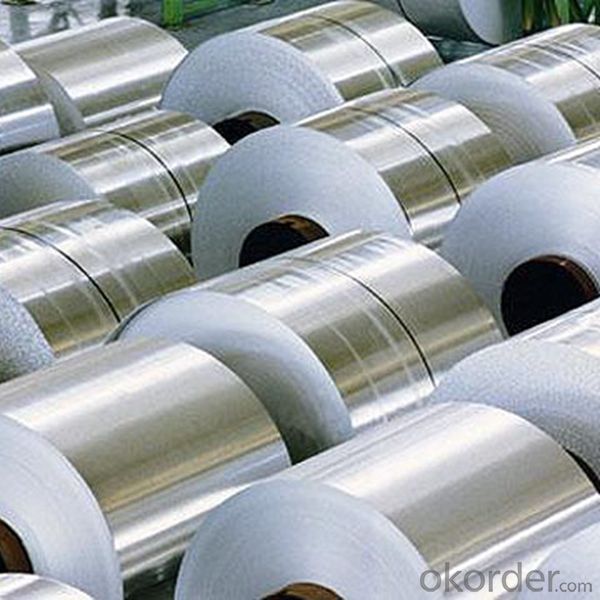
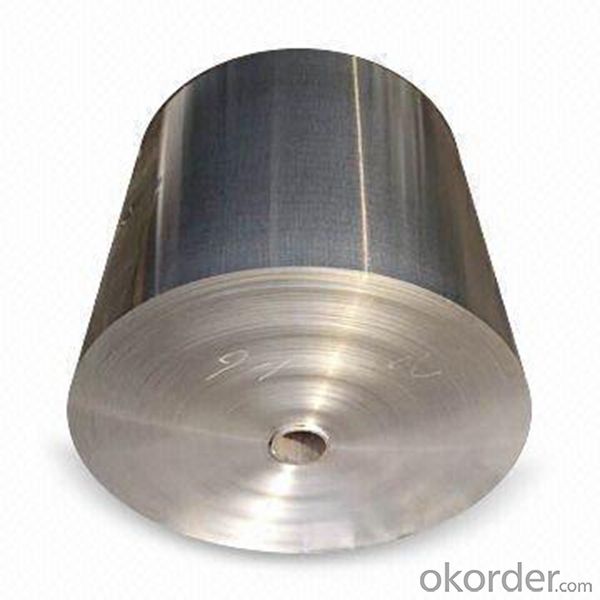
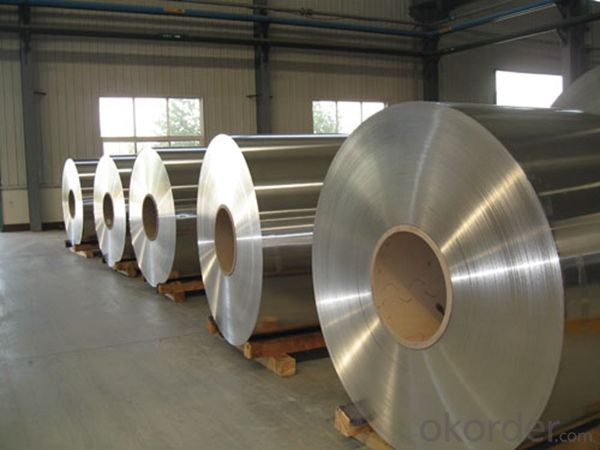
6. Package and shipping of Rolls Aluminum Mill Finished Hot Selling Products
eye to wall
eye to the wall
with wood pallet (wooded case also available)
7. FAQ
1) What is the delivery time?
Dpends on actual order, around 20 to 35 days
2)What is the QC system:
We have QC staff of 20 persons and advanced equipment, each production is with MTC traced from Aluminum ingot lot.
3) What market do you mainly sell to?
Australia, America, Asia, Middle East, Western Europe, Africa etc
- Q: What is the maximum coil weight for aluminum coils?
- The maximum coil weight for aluminum coils can vary depending on the specific grade and thickness of the aluminum being used. However, in general, aluminum coils can typically range from a few hundred pounds to several thousand pounds in weight.
- Q: Are aluminum coils suitable for coil coating applications?
- Indeed, coil coating applications find aluminum coils to be a suitable option. Aluminum, owing to its outstanding resistance to corrosion, lightweight composition, and impressive strength-to-weight ratio, enjoys extensive usage in coil coating. Moreover, its high malleability facilitates effortless shaping and molding throughout the coil coating procedure. Furthermore, aluminum coils can be coated with an array of paints and coatings, offering a diverse selection of colors and finishes. To sum up, aluminum coils are a favored preference for coil coating applications due to their adaptability, longevity, and visually pleasing attributes.
- Q: Why does the heat preservation aluminum roll bend when it is cooled?
- Insulation aluminum coil will appear when the cooling bending phenomenon, reason is generally under the conditions of air cooling, the heat transfer coefficient of the aluminum coil insulation parts in contact with the air were flat, but because the wall thickness or different shapes, different parts of the heat dissipation rate is not balanced, resulting in thick wall or hollow tube heat faster than the thin Department of slow, resulting in insulating aluminum roll cooling occurs to the hollow part or thick walled parts of the twists and turns of the phenomenon.
- Q: What is the primary function or use of a spring steel wire coil?
- <p>A spring steel wire coil is primarily used for its high elasticity and strength. It is designed to return to its original shape after being deformed, which makes it ideal for applications requiring resilience and durability. Common uses include the manufacturing of various types of springs, such as compression springs, torsion springs, and extension springs, found in automotive suspensions, mechanical devices, and industrial equipment. The coil's properties also make it suitable for applications in furniture, electronics, and other industries where a reliable and consistent force is needed.</p>
- Q: What are the different surface textures available for aluminum coils?
- Aluminum coils offer a range of surface textures, each with its own distinctive qualities and uses. 1. Smooth: The smooth surface texture is a popular and versatile option for aluminum coils. It boasts a sleek and polished appearance, making it suitable for a wide array of applications, including architectural cladding, signage, and consumer electronics. 2. Stucco: Stucco texture involves embossing the aluminum coil to create a raised pattern reminiscent of small pebbles. This texture enhances the coil's durability, offering resistance against scratches and dents. It is often chosen for applications that require a robust and decorative finish, such as roofing, wall panels, and decorative trim. 3. Diamond: The diamond texture features an embossed diamond-shaped pattern on the aluminum coil's surface. This texture not only adds visual appeal but also provides enhanced traction and slip resistance, making it ideal for flooring, stairs, and ramps. 4. Brushed: The brushed texture is achieved by mechanically brushing the surface of the aluminum coil, resulting in a linear pattern. This finish gives the aluminum a distinctive satin-like appearance, making it sought after for architectural applications like interior wall cladding, furniture, and decorative elements. 5. Hammered: To create the hammered texture, the aluminum coil's surface is hammered, producing a unique and irregular pattern. This texture lends a rustic and handcrafted look, making it suitable for decorative accents, light fixtures, and furniture. 6. Perforated: The perforated texture involves puncturing small holes or perforations into the surface of the aluminum coil. This texture allows for increased airflow, light transmission, and sound absorption, making it commonly used in ventilation systems, acoustic panels, and decorative screens. These examples illustrate the various surface textures available for aluminum coils. The choice of texture depends on specific application requirements, including aesthetics, functionality, and durability.
- Q: How do aluminum coils compare to copper coils in terms of performance?
- Aluminum coils and copper coils serve as two commonly used types of heat exchanger coils within heating, ventilation, and air conditioning (HVAC) systems. Although both materials effectively transfer heat, they differ in terms of performance. Due to its superior heat transfer properties, copper coils have long been the favored option for HVAC systems. Copper possesses excellent heat conductivity, enabling efficient thermal energy transfer. Consequently, copper coils effectively cool or heat the surrounding air, resulting in quicker and more efficient temperature control. Conversely, aluminum coils exhibit lower heat transfer efficiency compared to copper coils. Aluminum proves to be a poorer heat conductor, necessitating a larger surface area to achieve the same level of heat transfer as copper. Consequently, aluminum coils tend to be larger in size to compensate for their inferior heat transfer capabilities. However, aluminum coils possess certain advantages over copper coils. Firstly, aluminum boasts a lightweight nature, facilitating easier handling and installation. This proves particularly beneficial in situations where weight restrictions or handling limitations are present. Secondly, aluminum coils display greater resistance to corrosion in comparison to copper coils. Copper is susceptible to corrosion over time, especially in environments with high humidity or exposure to specific chemicals. In contrast, aluminum naturally forms a protective oxide layer, which aids in corrosion prevention. This results in longer-lasting coils and a reduced likelihood of refrigerant leaks. In conclusion, while copper coils offer superior heat transfer capabilities, aluminum coils possess their own benefits, such as lighter weight and enhanced corrosion resistance. Ultimately, the choice between aluminum and copper coils depends on the specific requirements of the HVAC system, including desired performance, budget, and environmental factors.
- Q: Roll presented above 1 complete circles are brineling put on work roll after the new rolling, less than 12 volumes in the aluminum surface will be presented in the corresponding position of a straight roller, a roller indentation in the above, check the work roll above a pit. Replace the upper support roll for only a few days. Want to know what's going on?Should not be bearing problems, because the bearings have been used for almost 4 years, it should not be bearing problems, and now they are suspected of bending cylinder seal problems, oil seepage phenomenon.
- Substandard products how to leave the factory, if not for external reasons, that is, when the design and installation of bearings, specifically, you find manufacturers to come to repair
- Q: Is it possible to utilize aluminum coils for the purpose of storage?
- <p>Yes, aluminum coils can be used for storage, particularly in industrial settings. They are often used for storing materials such as paper, plastic films, and other coilable products. Aluminum coils are lightweight, corrosion-resistant, and can be easily transported and handled. They are also recyclable and environmentally friendly. However, their suitability for storage depends on the specific application and the type of material being stored. It's important to ensure that the coils are stored in a dry, clean environment to prevent damage and maintain their integrity.</p>
- Q: Can aluminum coils be custom-made to specific requirements?
- Indeed, specific requirements can be met through the customization of aluminum coils. These coils possess great versatility and can be adjusted to fulfill a diverse array of specifications and applications. Manufacturers possess the capability to tailor the coil's dimensions, thickness, width, and length to accommodate particular needs. Moreover, the application of various surface finishes, including embossed patterns or coatings, can enhance both aesthetic appeal and functionality. The customization of aluminum coils enables the precise fulfillment of specific needs within industries such as construction, transportation, aerospace, and more.
- Q: This is not for around the house. It is for my lab. I am pretty sure these one wires are Aluminum, but I need the connector they were made with and the power cable is copper. Would it be okay to still try to join the two.
- They can be joined but only through a suitable device marked specifically for aluminum to copper connections. See website below.
Send your message to us
American Standard Aluminum Coils - Rolls Aluminum Mill Finished Hot Selling Products
- Loading Port:
- Shanghai
- Payment Terms:
- TT OR LC
- Min Order Qty:
- 5 m.t.
- Supply Capability:
- 10000 m.t./month
OKorder Service Pledge
OKorder Financial Service
Similar products
Hot products
Hot Searches
Related keywords
